We’re over a quarter the way through 2023, so of course it’s an appropriate time to do a year-in-review book list for 2022. It makes perfect sense!
I don’t sit down and read physical books nearly as much as I did growing up, but for a full calendar year, I actually paid for and kept with my Audible subscription, using and purchasing credits when they went on sale. So, with that, here are the books I ‘read’ in 2022.
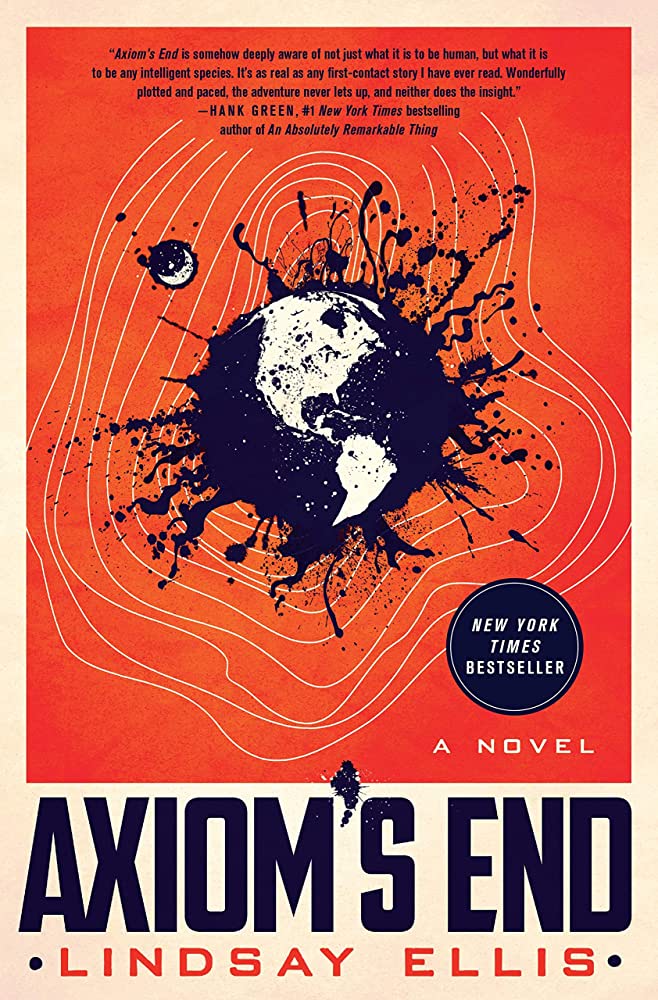
Axiom’s End
Lindsay Ellis
Lindsay Ellis weaves a mix of science fiction, alternative history, and current political struggles together in a compelling and suspenseful novel of first contact with a highly advanced alien species. In her debut novel, Lindsay challenges audience assumptions about the price of knowledge, the dangers of government overreach, and what it means to be human. It is a fantastic read, and the audiobook features multiple narrators who bring a great novelty to the listening experience.
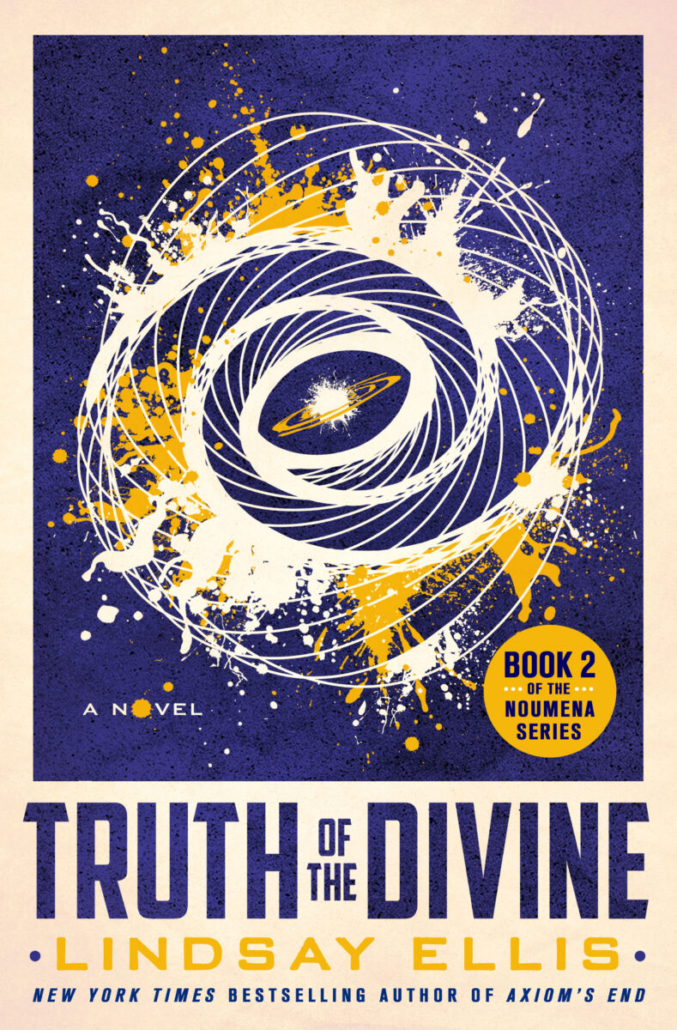
Truth of the Divine
Lindsay Ellis
In her much anticipated sequel to Axiom’s End, Lindsay carefully weaves two distinct perspectives of first contact together, pushing readers to grapple with concepts of love, addiction, friendship, suicide, and how we decide who is granted human rights. The Truth of the Divine reminds us of what we gain and those we’ve lost in the course of our lives, and how our decisions ripple out across the world, and across species. It is a fantastic book that leaves you on the edge of your seat, with the narration only improving on the already stellar performance of the first book. I eagerly await the final installment in the series.
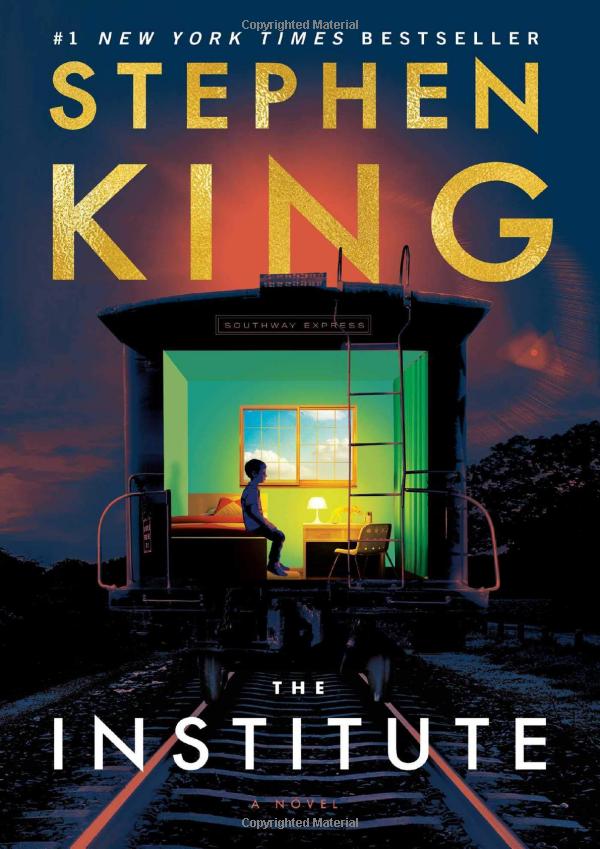
The Institute
Stephen King
Of the several King books I’ve read over the years, I’ve always been a fan of the more mystery related or psychological thriller genre books than his straight-up horror novels. Books like Carrie and Under the Dome hold special places in my thriller seeking heart. Well paced, The Institute feels almost like a near-future sequel to Carrie, exploring a reality where children are sometimes born with psychic abilities, and diving into the geopolitical consequences of those abilities. The Institute will have you on the edge of your seat at times, and have you wistfully relaxed at others. It’s a long listen / read, and has plenty of buildup to a classic Stephen King final spectacle. The book challenges your imagination, with psychic imagery and visions, and asks what you would do to secure both your freedom, and the freedom of the people you love.
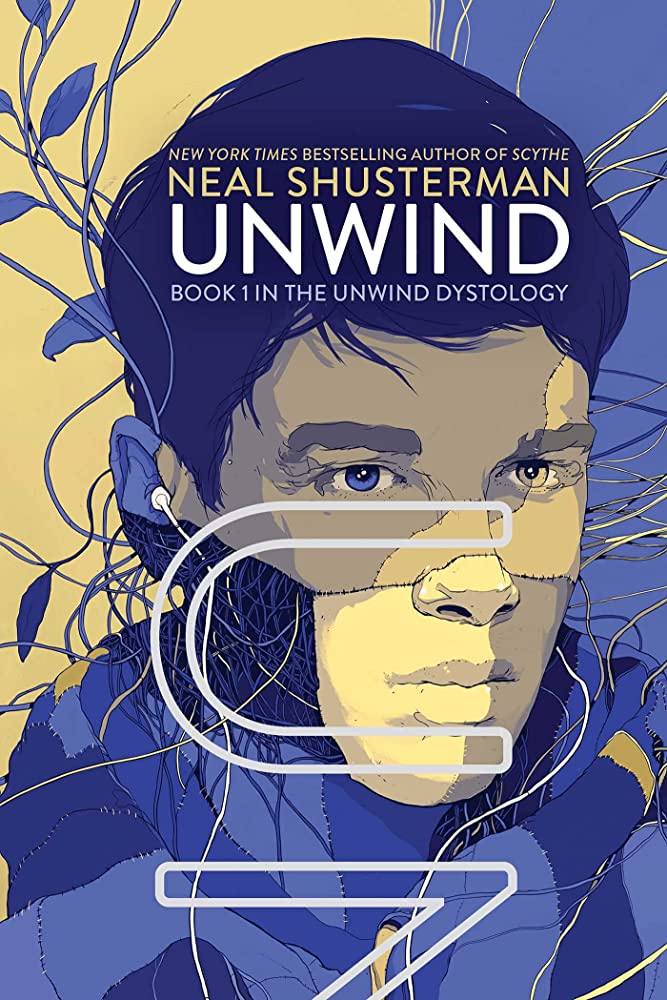
Unwind
Neal Shusterman
I’ve seen this novel praised by both pro-life and pro-choice groups as a book all people should read, supporting their respective arguments regarding abortion, and I find that to be a particularly entertaining framing to enter the novel’s world. Shusterman takes an extreme look at what it means to be alive, what it means to be a parent, and what it means to be an unwanted child. Instead of aborting a fetus, children can be “unwound”, taken apart organ-by-organ. If you never die, is it murder? What if you never lived? Unwind forces readers to grapple with hard questions about life, parenthood, and the discourse around abortion through a uniquely extreme lens. It’s an interesting and easy-to-read novel, with dark twists and a sinister undertone.
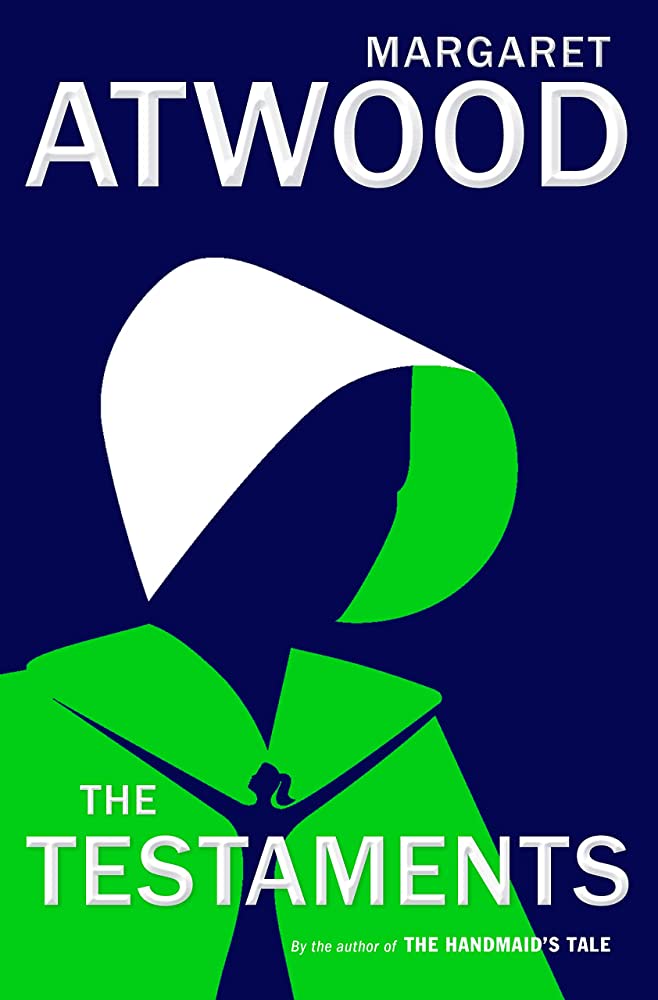
The Testaments
Margaret Atwood
I read The Handmaid’s Tale around 2019, as the Hulu original adaptation of the book became increasingly popular. The original book both added to the show’s already dark premise, and made me rapidly lose interest in the show as they dragged it out season after season. I haven’t watched more than one episode of the latest season. The Testaments, however, is a refreshing continuation of The Handmaid’s Tale told through multiple point of view characters, some familiar from the previous novel, and some new. As The Handmaid’s Tale describes life in the newly founded Gilead, The Testaments describes life in the about-to-collapse Gilead. Atwood once again showcases the dangers of extremist ideologies in a gripping way, and asks readers to examine what they would do in similar situations; showing that sometimes making the right decision can take decades to do. While The Testaments does seem to retcon the generally ambiguous ending of The Handmaid’s Tale, it leaves you with a sense of unease and hunger for more.
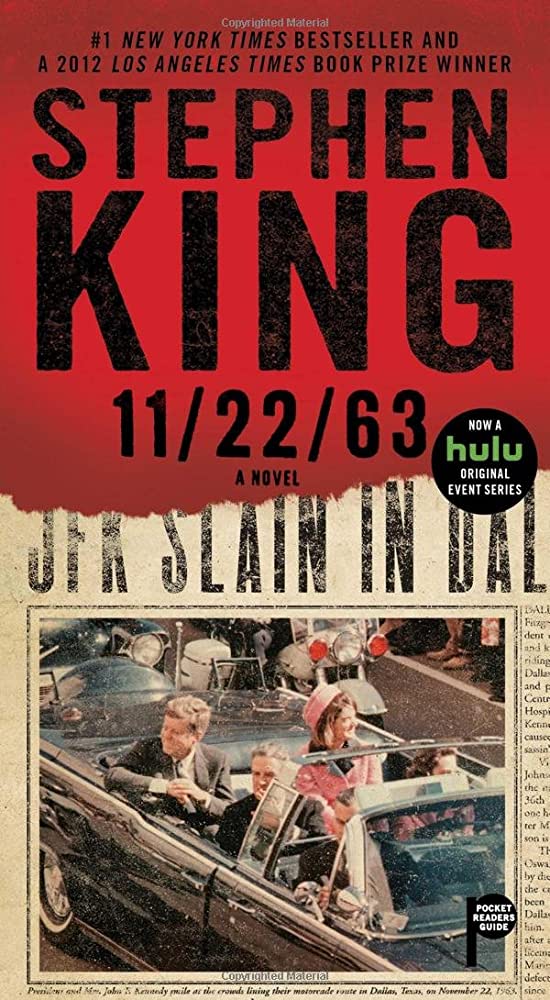
11/22/63
Stephen King
Who doesn’t love a good time travel story? And who hasn’t thought about what would happen if you could go back and change history? 11-22-63 is King’s exploration of those concepts through a surprisingly (for a King book) light and fanciful journey. King takes audiences back and forth between the 1960’s and the 2000’s, making readers question which timeline our protagonist really should live through; all while trying to stop one of the most public assassinations in American history in the hopes of saving the world. It’s a fun read, and it scratches that itch we have of “what if *insert historical event* never happened”.
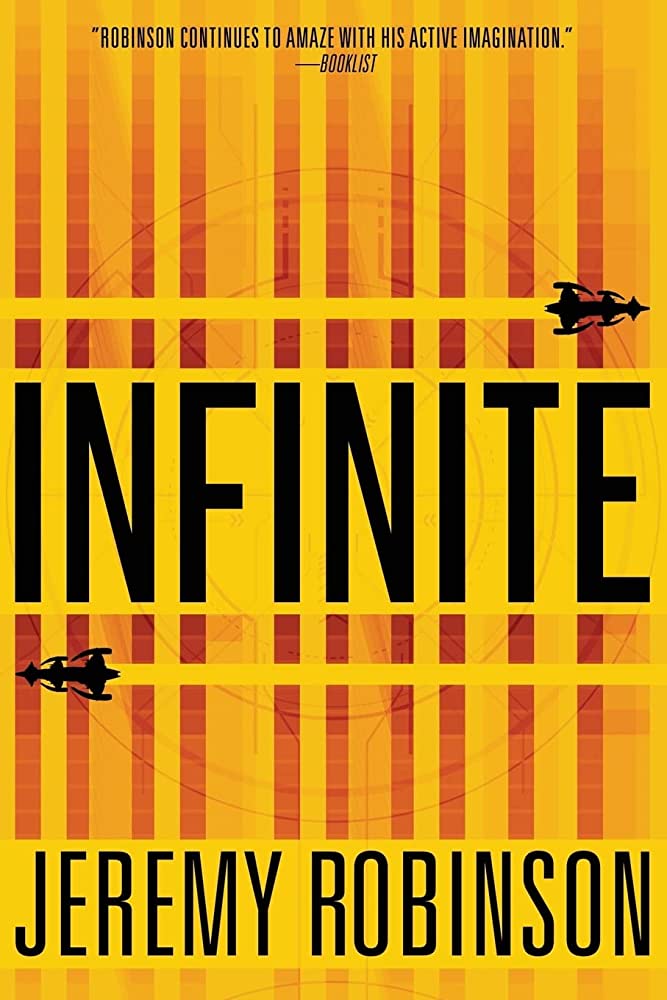
Infinite
Jeremy Robinson
Earth is dying. The Martian colony is dying. Humanity is dying, and our only hope is that the crew aboard the largest interstellar faster-than-light spaceship can find and colonize a habitable planet. The premise isn’t exactly new, but the execution of the story is truly unique and unlike any other science fiction book I’ve read. William, our point of view character, is forced to grapple with what is real and what is simulated, in an ever twisting game of cat and mouse against a superhuman AI. When humanity’s last hope is fading away, do you hide in a myth of your own creation, or do you fight for a better future that may or may not exist at all? Robinson explores ideas of time, space, AI, and reality itself in a gripping science fiction thriller. I was ecstatic to find out there was a sequel.
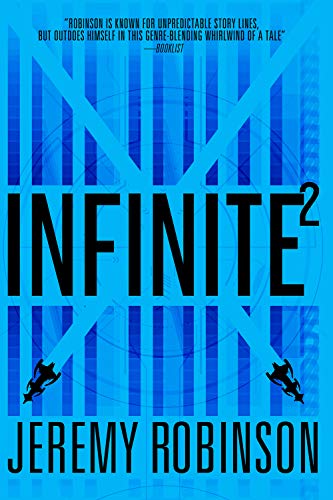
Infinite2
Jeremy Robinson
The sequel to Infinite, Infinite2 (Infinite 2 or Infinite Squared, depending on who you ask), is a mind bending acid trip at the end of the world and the edge of the universe. When you can’t tell what is real and what is simulated, and you don’t know where, or maybe even when, you are in the universe, can you save the ones you love? Can you save yourself? Robinson takes the most fringe ideas from the conclusion of the first book, Infinite, and expands upon them in new mind bending ways. With an infinite life, an infinite world, and an infinite timeline, you wouldn’t be able to guess the next plot points.
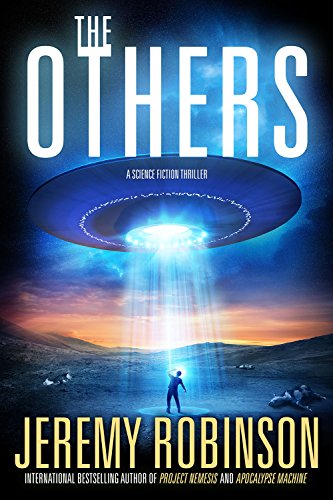
The Others
Jeremy Robinson
At this point, I was in a sci-fi binge, and Jeremy Robinson was a refreshing new author to add to the collection of Stephen King, Michael Crichton, and Andy Weir. The Others is more of a murder-mystery with a sci-fi twist. Robinson takes readers on a high paced, action packed, adrenaline filled journey of espionage, conspiracy theories, government cover ups, and epic shootouts in The Others. The book seemed to go by so quickly that I was surprised when it ended, not because of the ending, but because it didn’t feel like any time had passed, and I quickly listened to it again.
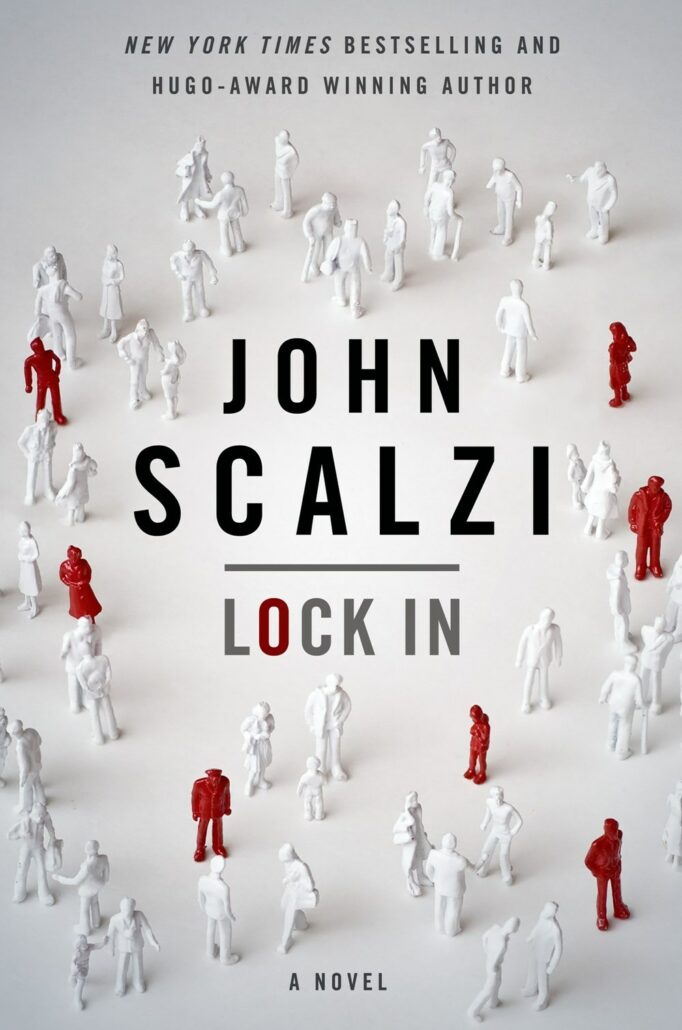
Lock In
John Scalzi
This was a fun one. Audible offers two different editions, each narrated by a different narrator. I chose the Amber Benson version, and was not disappointed. I haven’t listened to the Wil Wheaton narration yet, but it is on my list once I have a credit to spare. Coming off the tail end of a global health crisis through the COVID-19 pandemic, Lock In is almost disturbingly relevant. After a global pandemic leads to the paralysis of millions worldwide. Completely aware, but unable to move or react to their surroundings, Lock In tells the story of a society that chose to adapt with, support, and embrace their most vulnerable populations. Another sci-fi murder mystery to add to my collection, and it was worth every minute to listen to.
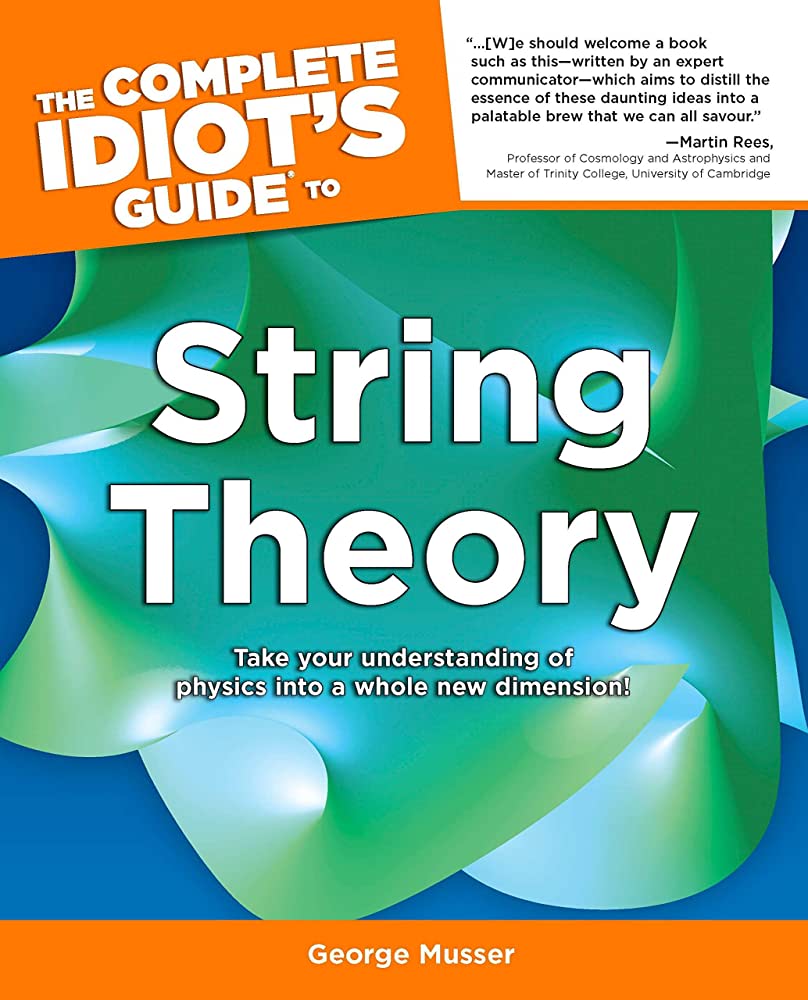
The Complete Idiot’s Guide to String Theory
George Musser
I am, and have always been, a nerd. I enjoy learning broad strokes of new concepts, and I enjoy consuming media that enhances my understanding of the world. I wouldn’t say that I’m an idiot by most definitions, despite the fact that as soon as the sun goes down, my internal compass does too. This book takes a highschol-to-college age approach for string theory, building plenty of background in the various subfields of physics, and plastering you with the absolute basics needed to understand, at a moderate level without the math, the concepts behind string theory. The book does get a bit repetitive over time, really trying to hammer in points about the overall impossibility of everything around us – likely to instill a sense of wonder that we can understand any of this at all – and it gets old. This is a book I had to put down and pick back up after long breaks because I got bored with the repetition. Overall, if you have a base understanding of physics, and are moderately media literate, this will undoubtedly bring new knowledge into your sphere.

Sapiens – A Brief History of Humankind
Yuval Noah Harari
I first read this book in 2018 or so, alongside the readings for a class I was taking on relationship humanity has with nature, and nature with us, both as separate ideas and as an extension of each other. That year, both the professor of the class, Jesse Priest, and this book’s author, Yuval Noah Harari, presented ideas that fundamentally changed the way I thought about the world and how I move through it. If you ever feel disillusioned with the world and how it’s run, give this book a read. It might just change how you see things.
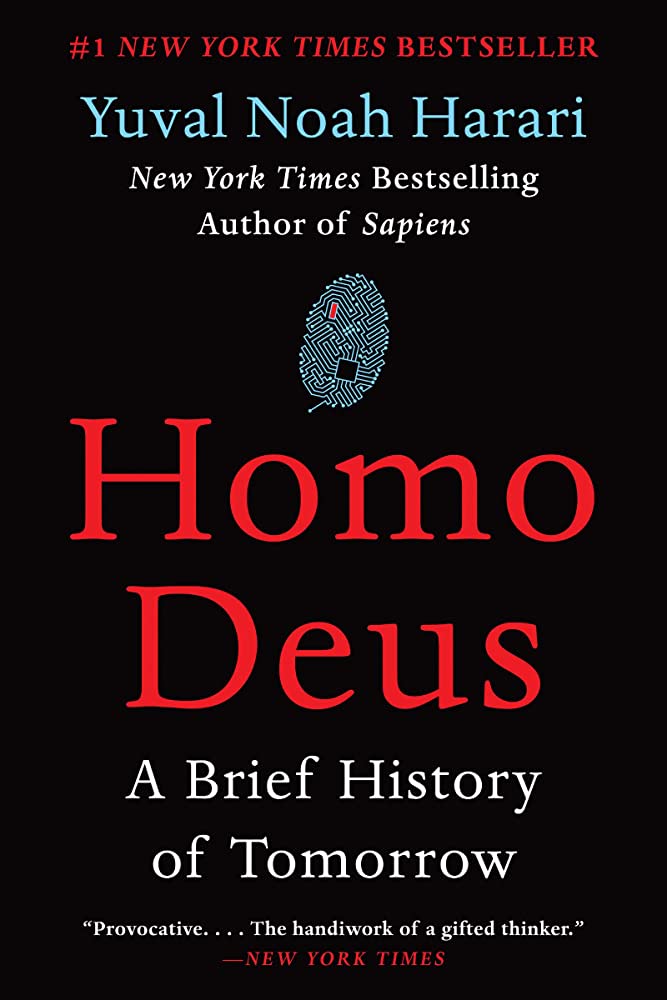
Homo Deus – A Brief History of Tomorrow
Yuval Noah Harari
Having read Harari’s A Brief History of Humankind, I just had to read A Brief History of Tomorrow. While not a literal or direct sequel to Sapiens, Homo Deus takes the ideas established in Sapiens and pushes them generations into the future, examining what the world will look like as our shared cultural values shift with the rise of technology, the rise, fall, and rise again of capitalism, socialism, communism, and religion. Harari warns of impending and looming crisis as a result of our shared beliefs and values, and examines possible consequences of our actions, and inactions, in the face of a world that is changing faster than biology can keep up with.
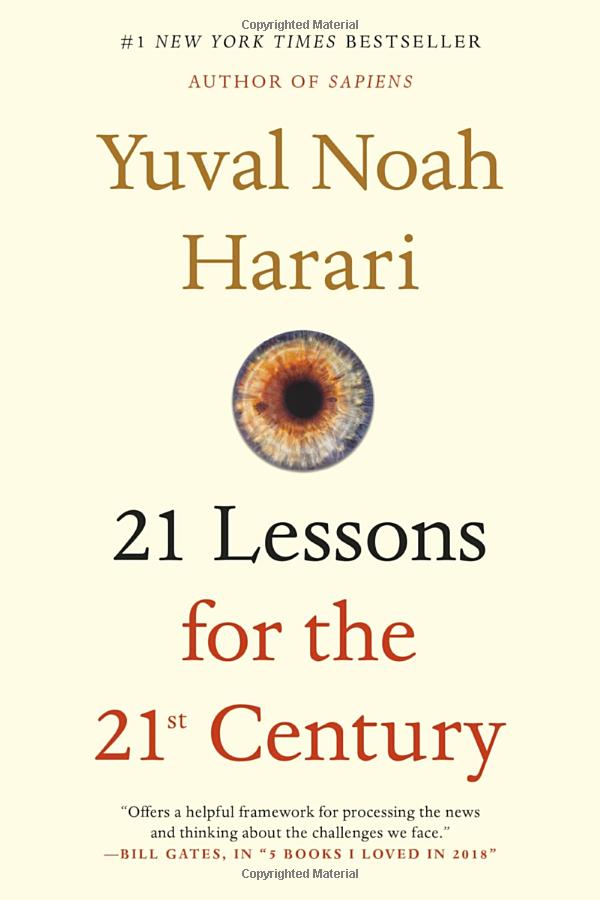
21 Lessons for the 21st Century
Yuval Noah Harari
I deeply admire the work that Harari has done with his books, and as I mentioned in the previous reviews, his work has shaped the way I view the world. This is all the more reason to be deeply disappointed that Harari didn’t write 21 Lessons a few years later. Published in 2018, Harari examines technology, religion, fascism and nationalism, war, terrorism, medicine, truth, and education through historical lenses; pulling out powerful lessons we need to learn fast if we are to survive the next century. Unfortunately, 2018 was just a few years too early to examine technology through a historical lesson-giving frame. The gap in technology between 2018 and 2022 may seem small, but the claims made around artificial intelligence back in 2018 are coming true decades earlier than predicted. If Harari had waited just 4 years to write the book, I’m certain it would take on a much different tone just from the technology shifts alone. Still, it is a fantastic read, and a fascinating insight into how we arrived at where we are today. Just, take his predictions, and speed them up a decade or two if you read it now.
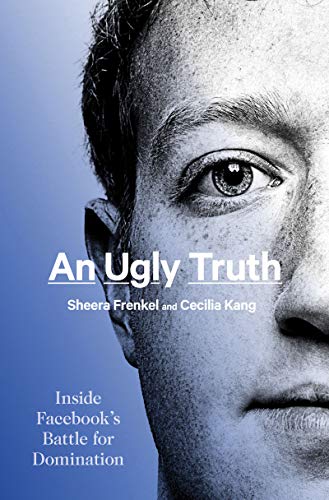
An Ugly Truth – Inside Facebook’s Battle for Domination
Sheera Frenkel, Cecilia Kang
At this point, the revelations in Frenkel and Kang’s book are old news. We all know that Facebook manipulated users, lied, and abused their core user and workforce base to become the dominant social media platform of the world. And it’s no surprise that they are flexing their power to become the word associated with the internet (some places more than others). So the contents of the book weren’t anything new or earth-shattering by the least. Still, Frenkel and Kang both work to uncover and explain some more hidden gems in Facebook’s past that didn’t garner national media attention. If you’re a techno-pessimist and looking for a quick history lesson on one of the most powerful technology companies in the world, it’s a good short read.
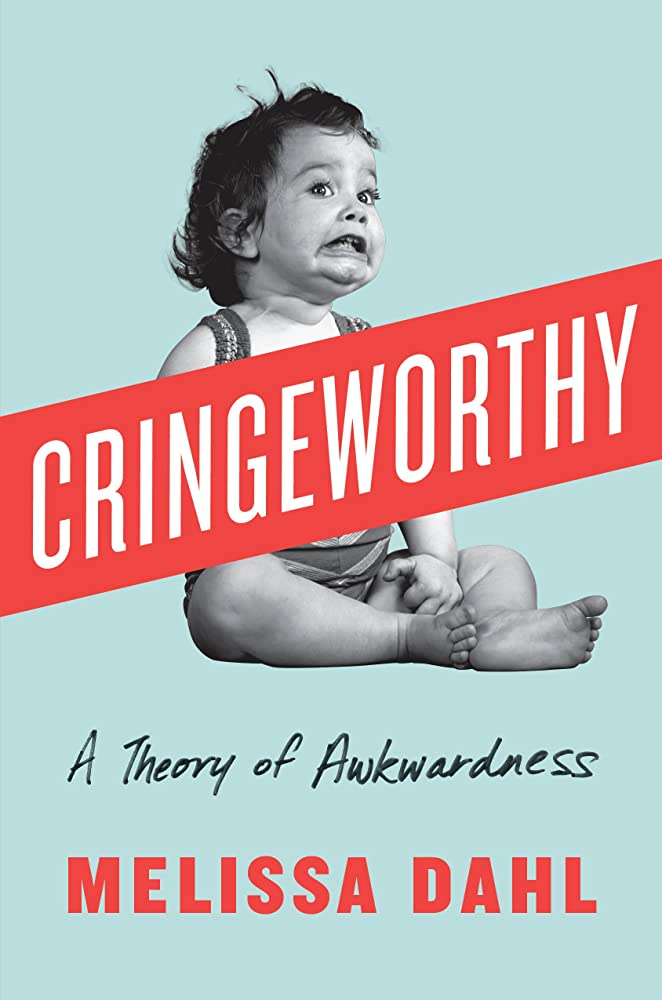
Cringeworthy: A Theory of Awkwardness
Melissa Dahl
I originally bought this book because our dark mother (aka Contrapoints) referenced it several times in her video essay about cringe. While I found the book to be thoroughly informative, it was certainly less entertaining overall than our dark mother’s video essay. Picking between the two, I’d say watch the essay. But the book does have merits to stand on its own. Rather than a cringe-focused philosophical analysis, like Contrapoints’s video, Dahl takes a more psychological approach to why we feel awkward, the purpose of awkwardness in social settings, and the strength that awkwardness can bring to the individual. I would be lying if I said this book didn’t help me examine my own awkwardness a bit more closely. It’s a short read, and worth the time, but watch Contrapoints’s video first.
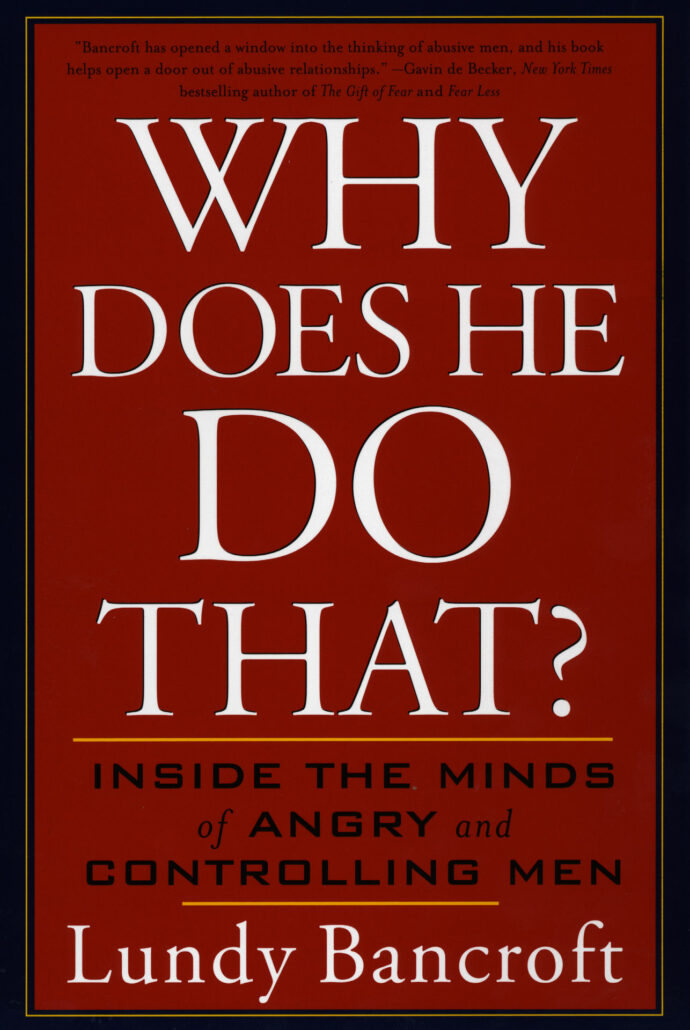
Why Does He Do That? Inside the Minds of Angry and Controlling Men
Lundy Bancroft
This book was… tough. I spend a good chunk of time in 2020 in an unhealthy relationship, and leaving it was both relieving and terrifying. I had constant questions about myself and my character, not knowing if I was an evil abuser, or if I was the victim of said abuse. The book was recommended to me by a dear friend who knew about the situation, and it helped me unpack everything that went on in the relationship, the good, the bad, and the ugly. Knowing on a surface level what gaslighting is, and experiencing it, are two separate beasts. Then, leaving the situation and deeply analyzing the abuser’s intent behind the gaslighting is a a psychological beast unto its own. The book was tough to listen to, tough to process, and emotionally draining, but worth every second of it, because it pushed me closer to healing and understanding that I couldn’t have achieved on my own. If you’re reading this, thank you, Samwise, for the recommendation.
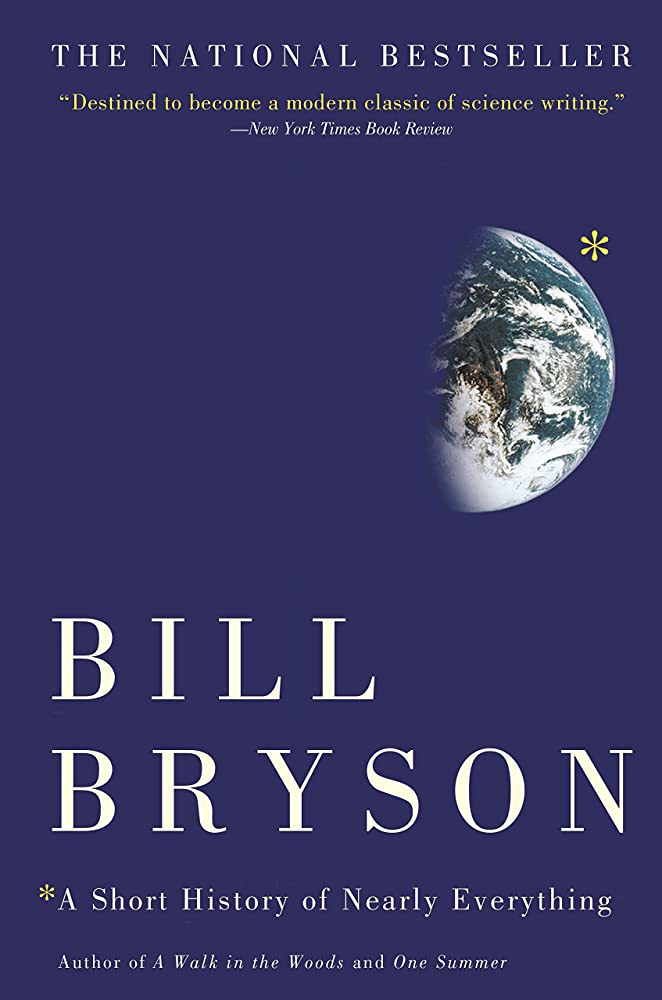
A Short History of Nearly Everything
Bill Bryson
I desperately wanted this book to be similar to Sapiens from Harari, an in depth analysis of the history of the universe: revealing new theories and philosophies about everything from the beginning of time to today and onward. I was thoroughly disappointed.
The first several chapters do line up with my expectations. Bryson goes into an entertaining amount of detail of our understanding of the first moments of existence in the universe, and goes on to explain the world we know now and how it developed. But maybe a third of the way into the book, it shifts in to a “history of scientists and the people who studied things”, instead of “a history of science and the natural world”. Bryson dives deeply into the history of the people who study the world, rather than the history of the wonders of the world themselves. I stopped listening to it for several months out of frustration. It’s a highly informative book, but it turns into a group biography of scientists and mathematicians, rather than a book about the science and math itself. If you’re a science and history buff, you’ll enjoy it immensely. I, unfortunately, did not.
